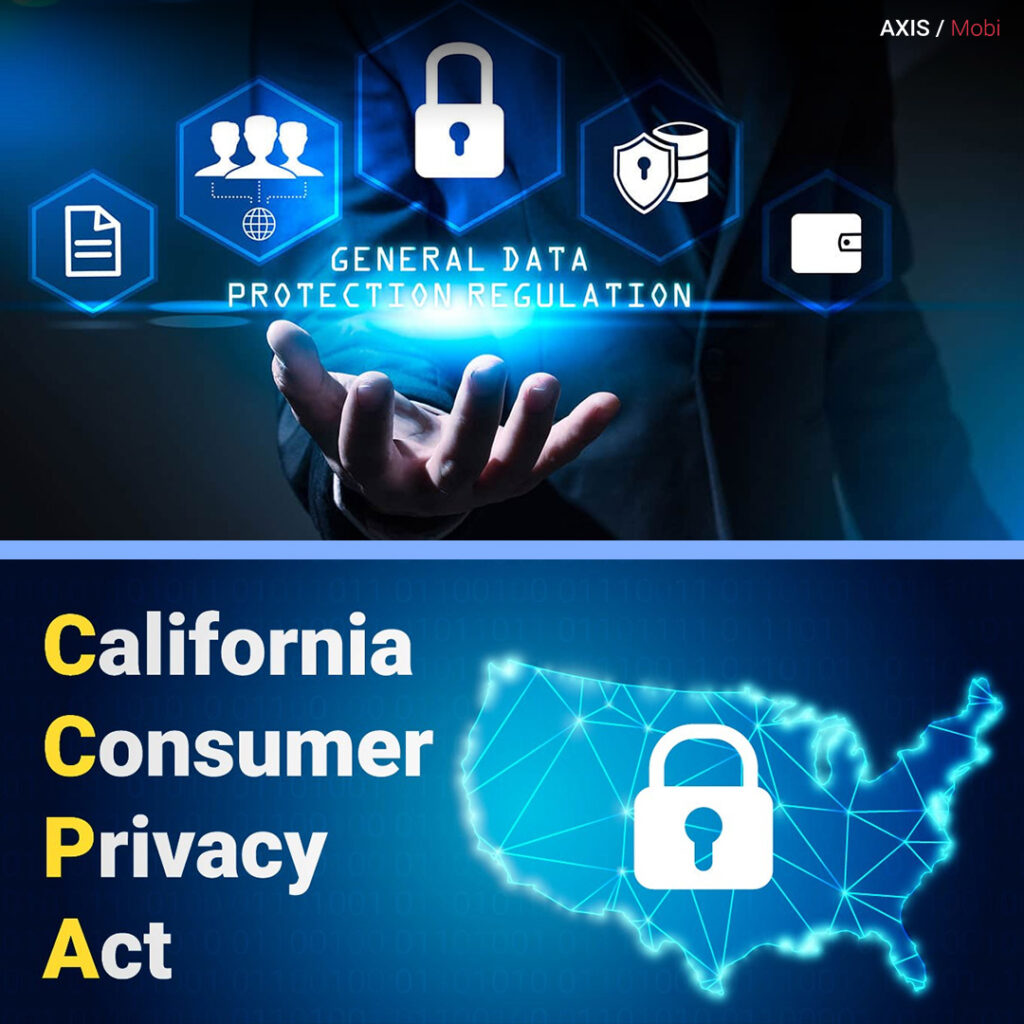The digital landscape is constantly evolving, and with it, the way we collect and utilize customer data. Data privacy has become a paramount concern for consumers worldwide in recent years. This shift has been fueled by high-profile data breaches and a growing awareness of how personal information is used online. To address these concerns, regulations like the General Data Protection Regulation (GDPR) and the California Consumer Privacy Act (CCPA) have emerged, forcing businesses to adapt their data practices.
Consumers are taking control. A staggering 72% of consumers globally express concern about how businesses use their data. This shift in consumer sentiment demands a new approach to data collection and marketing strategies. But fear not, this isn’t a dead end – it’s an opportunity to build trust and loyalty with your audience.
The GDPR and CCPA: Understanding the Landscape

The GDPR, implemented in 2018, is a regulation by the European Union (EU) with a global reach. It applies to any organization processing the personal data of individuals residing in the EU, regardless of the organization’s location. This broad reach makes understanding the GDPR essential for businesses operating internationally.
The CCPA, enacted in California in 2018, grants California residents specific rights regarding their personal information. These rights include the ability to access, delete, and opt-out of the sale of their data. While the CCPA has a narrower geographical scope than the GDPR, it serves as a model for data privacy legislation in the United States. With several other US states like Virginia and Colorado enacting similar laws, it’s clear that data privacy regulations are here to stay.
Key Provisions of Data Privacy Laws

Both the GDPR and CCPA share some core principles:
- Transparency: Businesses must be clear about the data they collect, how it’s used, and with whom it’s shared. Privacy policies need to be easily accessible and written in clear, concise language.
- Consent: Users must explicitly consent to the collection and use of their data. This means clear opt-in mechanisms and avoiding pre-checked boxes.
- Data Subject Rights: Individuals have the right to access, rectify, or erase their personal data. Businesses must have processes in place to fulfill these requests promptly.
- Data Security: Organizations are required to implement appropriate security measures to protect personal data from unauthorized access, disclosure, alteration, or destruction.
Adapting Your Marketing Strategy for a Privacy-Conscious Era

So, how can you adapt your digital marketing strategy to thrive in this new environment? Here are some key steps:
- Conduct a Data Audit: First things first, understand what data you collect, for what purpose, and from whom. This helps identify potential compliance gaps and areas for improvement.
- Prioritize Zero-Party Data: Zero-party data is information that users willingly provide, such as when they sign up for a newsletter or create an account. This data is much more valuable in a privacy-conscious world as it comes with explicit consent.
- Build Trust Through Transparency: Be upfront about your data collection practices. Clearly explain what data you collect, how it’s used and secured, and provide users with easy-to-find opt-out options.
- Embrace Preference Management Tools: Implement user-friendly tools that allow customers to control their data preferences. This can include clear and simple opt-out mechanisms and preference centers.
- Focus on Contextual Targeting: Explore alternative targeting methods that rely on contextual information instead of personal data. This may involve focusing on user interests, demographics, or website behavior.
- Invest in Data Security: Robust data security is not just a compliance requirement; it’s essential for building trust with your audience. To safeguard user information, invest in data encryption, access controls, and employee training.
The Future of Marketing With Data Privacy

While data privacy regulations may seem like an obstacle, they present an opportunity to build stronger customer relationships. You can create a marketing environment that fosters trust and loyalty by focusing on transparency, security, and user control. Here’s the good news: 83% of consumers are willing to share data with brands they trust. Earn that trust by putting data privacy at the forefront of your marketing strategy.
Remember, the days of mass, impersonal marketing campaigns are fading. The future lies in personalization with a privacy-conscious approach. Focus on delivering relevant and valuable experiences built on user consent and trust. This shift, while requiring some adaptation, can ultimately lead to a more sustainable and successful marketing strategy in the long run.
-
What is the GDPR and who does it apply to?
The GDPR is a regulation by the European Union that applies to any organization processing the personal data of individuals residing in the EU, regardless of the organization’s location.
-
What rights does the CCPA grant to California residents?
The CCPA grants California residents the rights to access, delete, and opt-out of the sale of their personal data.
-
What are the core principles shared by the GDPR and CCPA?
The core principles include transparency, consent, data subject rights, and data security. These regulations require clear communication, explicit user consent, and robust data protection measures.
-
How can businesses build trust through their data collection practices?
Businesses can build trust by being transparent about their data collection practices, providing clear opt-out options, and ensuring robust data security.
-
What is zero-party data and why is it important?
Zero-party data is information that users willingly provide, such as when they sign up for a newsletter. It is valuable because it comes with explicit user consent, making it more reliable in a privacy-conscious world.




